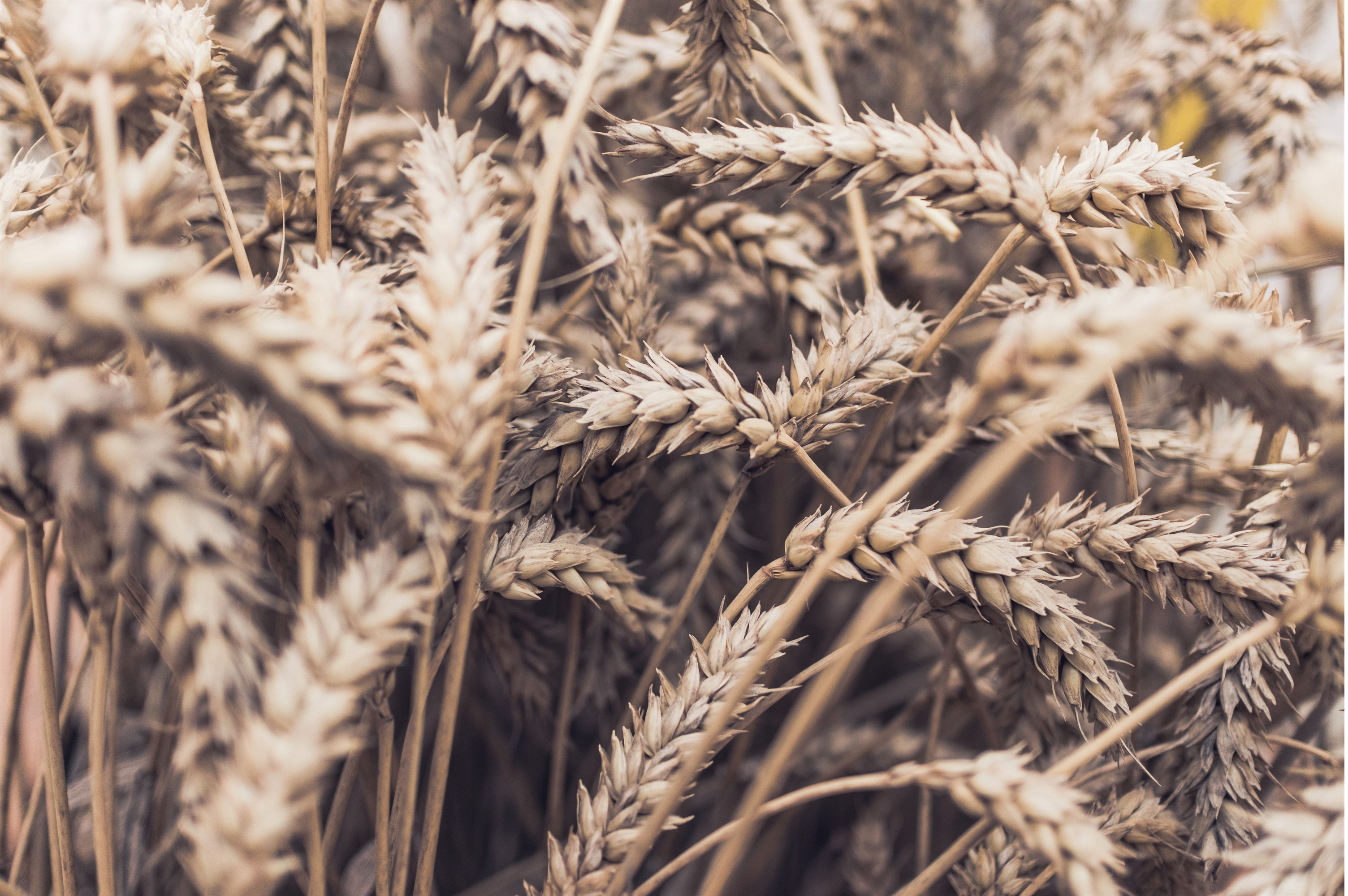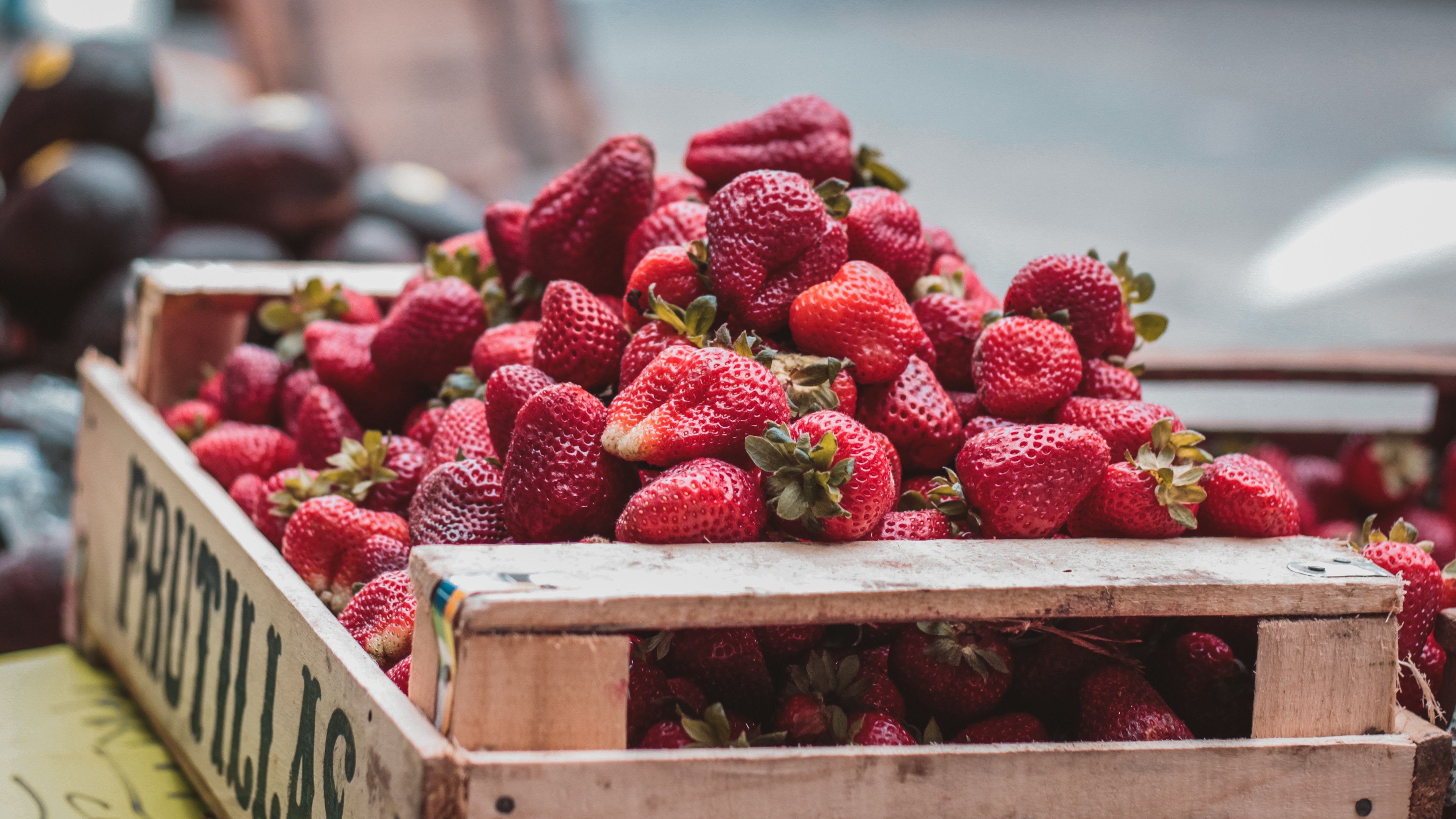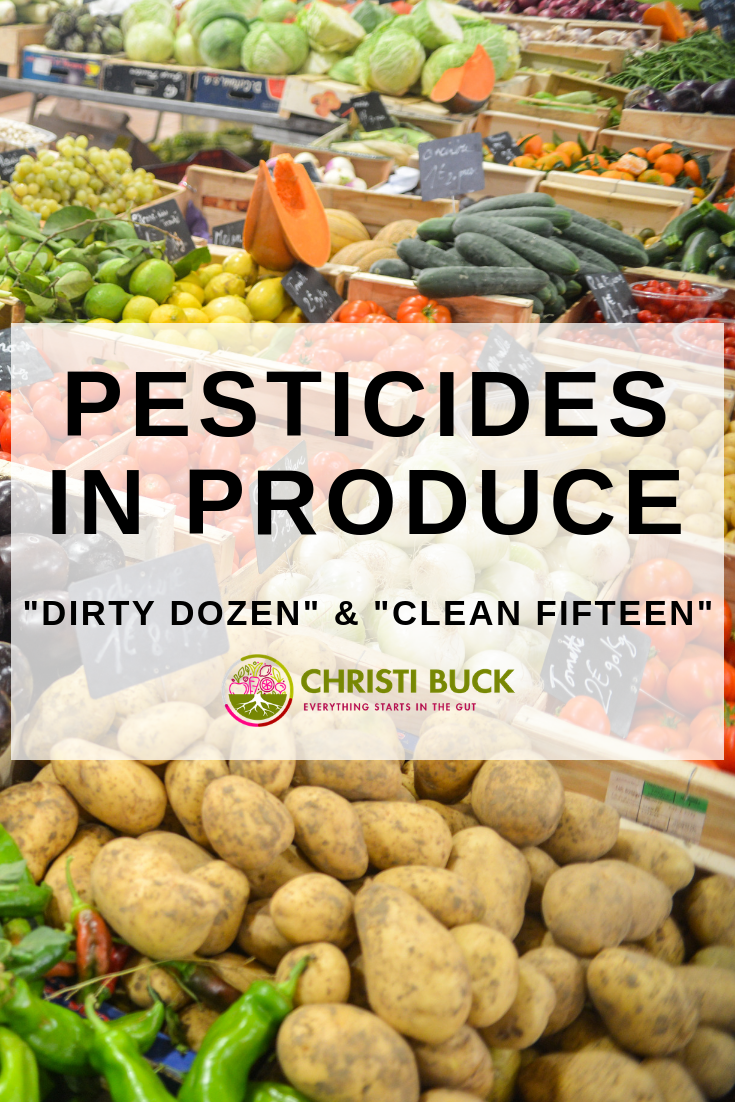Organic produce is in high demand and that demand’s been growing over the years. You might be wondering…why is that? People are on the hunt for organic produce for a variety of reasons, but one of the main reasons is pesticide exposure.
Pesticides 101
Before I convince you to minimize your pesticide exposure, let me tell you a little bit about them. According to the World Health Organization (WHO), pesticides are chemicals used in agriculture to protect crops against insects, fungi, weeds and other pests.
There are a variety of types of pesticides including herbicides, fungicides, insecticides, and rodenticides. Each type of pesticide targets a different type of pest like weeds, fungal rot, insects, and rodents.

Pesticides aren’t just found in fresh produce! You can find pesticides in just about any food product like cereals, oatmeals, granola, snack bars, etc. Believe it or not, the Environmental Working Group (EWG) uncovered significant doses of the popular Monsanto weed killer, Roundup, in those very products made by General Mills and PepsiCo. You can read all about the lawsuit here and here.
Long story short, the EWG published their second round of rest results at the end of October in 2018 reporting that they found glyphosate in every single sample of oat-based cereal and other oat-based food. Scientists from California state and the WHO have linked the main ingredient in Roundup, glyphosate, to cancer and other adverse health effects.
Why You Should Minimize Pesticide Exposure
Pesticides can really take a toll on your health. Regular exposure to pesticides can induce negative health effects including cancer, respiratory issues, weakening of the immune system, or nervous system issues. Overexposure in children can even be linked to an increased risk of developing ADHD. High intake of pesticides can also leave you more vulnerable to developing neurological disorders like Parkinson’s disease.
Pesticides in Produce
Even though people are becoming increasingly aware of the dangers of pesticide exposure, many consumers still don’t realize that pesticide residues are common on conventionally grown produce. And this is still true even after you’ve washed or peeled your produce. According to the USDA, almost 70% of conventionally grown produce is contaminated with pesticides. This study found that organically grown foods consistently had about 1/3 as many residues as conventionally grown foods.
The USDA runs tests to identify the different types and amounts of pesticides found in conventionally grown produce. Once these tests have been run, the EWG analyzes the results. In 2018, the EWG looked at a variety of measures in their analysis:
- Percent of samples tested with detectable pesticides
- Percent of samples with two or more detectable pesticides
- Average number of pesticides found on a single sample
- Average amount of pesticides found, measured in parts per million
- Maximum number of pesticides found on a single sample
- Total number of pesticides found on the crop
Every year, the EWG takes the results of their analysis and creates their Shopper’s Guide to Pesticides in Produce. This shopper’s guide includes a “Dirty Dozen” list and a “Clean Fifteen” list. Below are copies of both lists so you can prioritize buying the “dirty dozen” organic whenever possible.
EWG’s Dirty Dozen
The “Dirty Dozen” is a list of fruits and vegetables with the highest levels of pesticide residues when grown conventionally.

- Strawberries
- Spinach
- Nectarines
- Apples
- Grapes
- Peaches
- Cherries
- Pears
- Tomatoes
- Celery
- Potatoes
- Sweet Bell Peppers
You can check out the official list from EWG here.
EWG’s Clean Fifteen
The “Clean Fifteen” is a list of fruits and vegetables with the lowest levels of pesticide residues when grown conventionally.

- Avocados
- Sweet Corn
- Pineapples
- Cabbages
- Onions
- Sweet Peas Frozen
- Papayas
- Asparagus
- Mangoes
- Eggplants
- Honeydew
- Kiwis
- Cantaloupes
- Cauliflower
- Broccoli
You can check out the official list from EWG here.
How To Wash Your Produce
If you can’t buy organic produce for whatever reason, there are steps you can take to minimize your exposure to pesticides. Granted, you won’t be able to remove the pesticides completely, but you should be able to remove some of them. Below are a few suggestions from the National Pesticide Information Center.
- Wash fruits and vegetables even if you do not plan to eat the skin.
- Wash your hands with soap and warm water before and after handling fresh fruits and vegetables.
- Hold the fruit or vegetable under flowing water in a strainer. This removes more pesticide than dunking the produce.
- The FDA does not recommend washing fruits and vegetables with soap, detergent, or commercial produce wash. They have not been proven to be any more effective than water alone.
- No washing method is 100% effective for removing all pesticide residues.
- Scrub firm produce like melons and potatoes with a clean brush. Scrubbing firm fruits can help get more of the residues off.
- Rub soft produce like grapes while holding them under running water to remove residues.
- Put fragile fruits and vegetables like berries in a colander and turn it while gently spraying it with water.
- Discard the outer leaves of leafy produce, like lettuce and cabbage.
- Peel produce that can be peeled, like peaches or apples.
- Heating can help get rid of residues, but you might be getting rid of nutrients, too.
Should you avoid pesticides at all costs?
Nope! You don’t have to avoid pesticides at all costs. There’s a boatload of evidence-based science out there that points to the myriad of benefits that come along with eating lots of fruits and vegetables. While there’s also science that supports the negative benefits of pesticide consumption, this shouldn’t deter you from eating produce if you can’t buy it organically grown.
Whenever possible, you should prioritize buying the “dirty dozen” organically grown. But if you can’t afford it or it isn’t available to you, don’t sweat too much. There are steps you can take to remove pesticide residues from your produce. No need to miss out on the nutrition benefits of fresh fruits and vegetables!
Worried about pesticide and chemical exposure? Check out this article on the Top 5 Reasons to Ditch Chemicals From Your Life.


